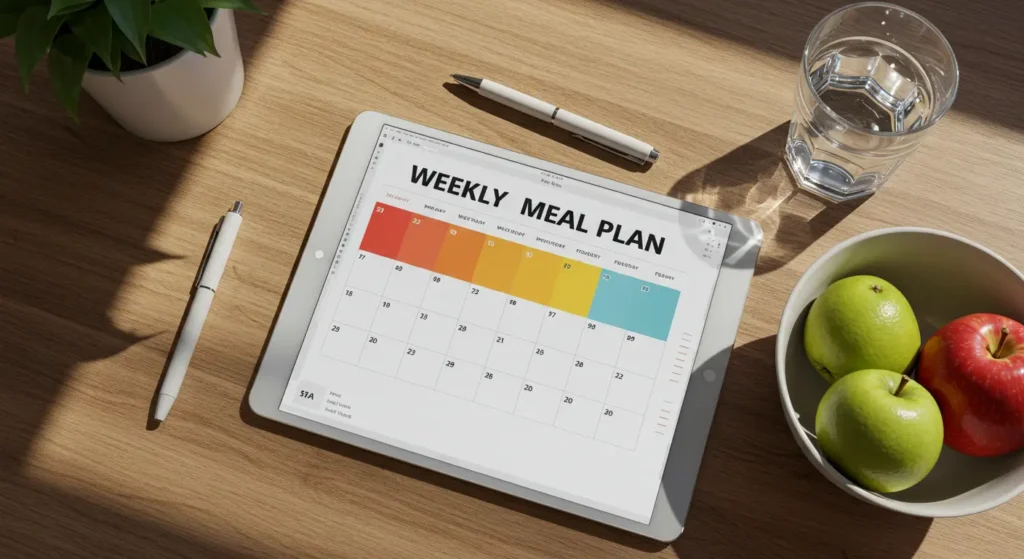
As we age, our bodies go through many changes — and our digestive system is no exception. If you’re over 60 and often feel bloated, constipated, or struggle with unpredictable digestive discomfort, you’re not alone. These issues are common and can deeply affect your daily life, energy levels, and overall well-being.
But here’s the good news: you don’t need to rely on expensive supplements or complicated medical procedures to feel better. In fact, thousands of women over 60 have already started experiencing relief by adopting a few simple, natural habits each day. And you can too.
Why Gut Health Matters After 60
As we grow older, our digestive system becomes more sensitive. The natural production of digestive enzymes can decrease, our gut lining may weaken, and the balance of good bacteria (the microbiome) often shifts. These changes make it harder to digest food, absorb nutrients, and eliminate waste efficiently.
In other words, problems like gas, bloating, abdominal pain, constipation, or diarrhea aren’t just “in your head” — they’re signs your gut may be out of balance and in need of support.
Common Digestive Problems in Seniors

✅ Bloating and gas after meals
✅ Constipation or irregular bowel movements
✅ Abdominal pain or discomfort
✅ Indigestion and acid reflux
✅ Food sensitivities that didn’t exist before
These symptoms can lead to social withdrawal, fatigue, and a sense of frustration — especially when no medication or doctor seems to provide a long-term solution. Learn how to recognize the early signs of poor gut health so you can take action before symptoms get worse.
What Is the Low FODMAP Diet and How It Helps
One of the most effective natural approaches to improve gut health is the **Low FODMAP diet** — a plan developed by researchers in Australia that has helped reduce digestive symptoms in up to 78% of people, including seniors.
FODMAPs are types of sugars and fibers found in many everyday foods. For some people, these trigger excess gas, bloating, and inflammation in the gut. By removing high FODMAP foods for a short period, and then reintroducing them carefully, many people experience significant relief.
This is not a fad diet — it’s a structured and science-backed method that helps you identify which foods are causing problems, and which ones help your gut thrive.
Simple Daily Habits to Improve Gut Health After 60

- 🥦 Eat slowly and chew your food well to support digestion
- 🚶♀️ Take a gentle walk after meals to stimulate gut movement
- 💧 Stay hydrated — water is essential for smooth digestion
- 📓 Keep a food journal to track which meals trigger discomfort
- 😌 Practice relaxation techniques — stress directly impacts your gut. In fact, practicing guided breathing techniques before bed may improve both digestion and sleep quality for people over 60.
These small actions may seem basic, but they’re powerful when practiced consistently. When combined with the right dietary approach, they can reset your gut health naturally.
Foods to Eat and Avoid for Better Digestion

✅ Eat More Of:
- Low-FODMAP vegetables like spinach, carrots, and zucchini
- Fruits like bananas, blueberries, and kiwi (in small portions)
- Gluten-free grains like rice and oats
- Lactose-free dairy or plant-based milk
- Herbal teas like peppermint or Turmeric Ginger
🚫 Avoid (Temporarily):
- Onions, garlic, and cabbage
- Dairy products with lactose
- Wheat, barley, and rye (unless gluten-free)
- Beans and legumes
- Sugar alcohols like sorbitol and mannitol (often found in sugar-free products)
Understanding which foods help and which ones harm is a big part of long-term relief. That’s why having a clear, structured plan can make all the difference. Anti-inflammatory foods like these may also support joint health — especially for seniors managing chronic knee pain.
How to Start a Gentle Gut Reset at Home
If you’re ready to take action and give your digestive system a break, one of the easiest and safest ways is by following a guided Low FODMAP reset. This approach allows you to eliminate problematic foods, give your gut time to heal, and then slowly reintroduce foods to find out what works for your body.
You don’t have to do this alone — there are expert-designed programs specifically created for beginners over 60 who want real, lasting results.
Want a Step-by-Step Plan Created by a Dietitian?

If you’re looking for a simple, proven way to reset your gut health in just two weeks, the 14-Day Digestive Health Reboot may be exactly what you need. It includes everything: easy-to-follow meal plans, food lists, snacks, restaurant guides, video tutorials, and even tips for dining out — all based on the Low FODMAP method and backed by clinical experience.
👉Click here to learn more about the 14-Day Digestive Health Reboot
Frequently Asked Questions (FAQ)
Q1: Can gut health really improve after 60?
Yes! With the right habits and foods, many people over 60 experience noticeable improvement within weeks.
Q2: How long does it take to feel better?
Many people report less bloating and more regular digestion in as little as 7 days on the Low FODMAP approach.
Q3: Is this method safe if I haven’t been diagnosed with IBS?
Yes — the Low FODMAP approach is simply a food-based method for identifying your personal food triggers.
Q4: Do I need supplements for this?
Not necessarily. Most results come from dietary changes alone — supplements are optional.
Conclusion
Improving your gut health doesn’t require extreme diets or expensive solutions. With a little guidance and a few simple habits, you can support your digestion, reduce discomfort, and feel more like yourself again — naturally.
Whether you’re just starting or have tried other methods before, there’s a way forward. The path to a healthier gut starts with small, consistent steps — and you can begin today.

Disclaimer:
The content provided in this article is for informational and educational purposes only and is not intended to serve as medical advice, diagnosis, or treatment. Always consult with a qualified healthcare professional before making any changes to your diet, exercise, or wellness routine. The product mentioned is not intended to diagnose, treat, cure, or prevent any disease. Individual results may vary.
